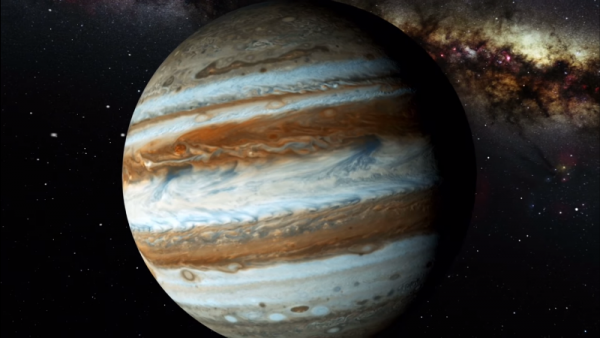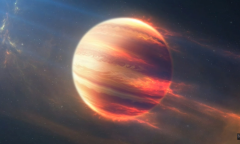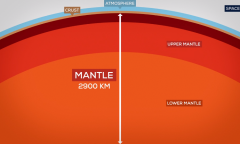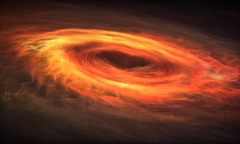By KM Diaz, | June 14, 2017

Researchers found that the oldest planet in our solar system is Jupiter. (YouTube)
Researchers from the Lawrence Livermore National Laboratory and Institut für Planetologie at the University of Münsterin Germany found that the oldest planet in our solar system is Jupiter by studying the molybdenum and tungsten isotopes on iron meteorites
The international group of scientists discovered that meteorites are made up of two genetically diverse nebular reservoirs that coincided but remained separated between 1 million up to 3-4 million years following the formation of the solar system.
Like Us on Facebook
According to Thomas Kruijer, the lead author if the study, the formation of Jupiter, opening a gap in the disc and stopping the exchange of material in the two reservoirs, is the most plausible mechanism for the efficient separation. Jupiter's solid core built completely before the solar nebula gas disappeared.
Since Jupiter is the most massive planet in the solar system, its presence had an immense impact on the dynamics of the solar accretion disc. Understanding the age of Jupiter could be the key on why solar system emerged toward its present-day architecture. Some models have already predicted that Jupiter was formed relatively early, but until now, the formation of the planet has never been dated.
The study uses isotope signatures of meteorites to infer the age of Jupiter as the researchers do not have any samples from the planet, opposed to other bodies like the moon, Mars, Earth, and asteroids. The team revealed using the isotope analyses of meteorites that the solid core of Jupiter created within just about 1 million years after the solar system starts history, thus making it the oldest planet.
Because of this rapid formation, Jupiter served as a barrier against inward transport of material beyond the disc which could explain why our solar system has no super-Earths - extrasolar planet higher than the mass of the Earth. Moreover, researchers were able to identify that the core of Jupiter grew to roughly 20 Earth masses within 1 million years, following a more extended growth to 50 Earth masses until 3-4 million years after the formation of the solar system.
The study was able to date Jupiter precisely within 1 million years through isotopic signatures of meteorites. And though the rapid accretion of cores has been modeled, their formation is still not possible to date. Kruijer noted that their measurements indicate that Jupiter's growth can be dated through the formation times of meteorites and distinct genetic heritage.
-
Use of Coronavirus Pandemic Drones Raises Privacy Concerns: Drones Spread Fear, Local Officials Say

-
Coronavirus Hampers The Delivery Of Lockheed Martin F-35 Stealth Fighters For 2020

-
Instagram Speeds Up Plans to Add Account Memorialization Feature Due to COVID-19 Deaths

-
NASA: Perseverance Plans to Bring 'Mars Rock' to Earth in 2031

-
600 Dead And 3,000 In The Hospital as Iranians Believed Drinking High-Concentrations of Alcohol Can Cure The Coronavirus

-
600 Dead And 3,000 In The Hospital as Iranians Believed Drinking High-Concentrations of Alcohol Can Cure The Coronavirus

-
COVID-19: Doctors, Nurses Use Virtual Reality to Learn New Skills in Treating Coronavirus Patients











